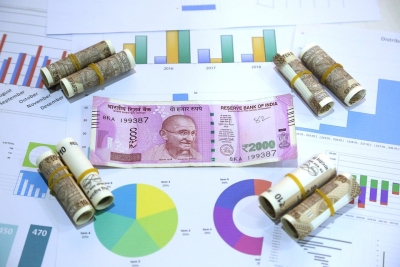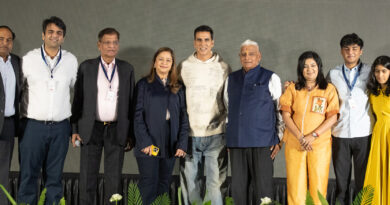Know the architects of Union Budget
New Delhi, Jan 17: As the day for the presentation of Union Budget 2023-24 nears, Finance Minister Nirmala Sitharaman and her team of officials are burning the midnight oil to unveil the nation’s record of income and expenses on February 1.
BILKULONLINE takes a look at the nine individuals who are the brains behind the annual exercise.
* Nirmala Sitharaman, Finance Minister
Nirmala Sitharaman will be presenting her fourth Union Budget on February 1. She has helmed the Finance Ministry during the two tumultuous years of Coronavirus pandemic and has piloted several economic relief packages, to help tide over the challenges posed by the pandemic.
Sitharaman is now negotiating the risks to domestic economy from the prevailing tricky global geopolitical situation as well as problems being posed by the ever depreciating rupee.
The forthcoming Budget would test her mettle, as she would have to come up with solutions to the various economic challenges being faced by the nation’s economy.
* T.V. Somanathan, Finance Secretary
The 1987-batch IAS officer from the Tamil Nadu cadre was earlier a Joint Secretary in the Ministry of Corporate Affairs and with the Prime Minister’s Office (PMO) from 2015 to 2017.
Under him, capital expenditure has surged and efforts are also on to boost the capex of states.
Somanathan holds a doctorate in economics, and is also a qualified chartered accountant (CA), cost accountant and company secretary.

* Ajay Seth, Economic Affairs Secretary
The Karnataka cadre 1987-batch IAS officer is one of the most significant members of the Finance Minister’s team, as the budget division, which collates all data, is under his watch.
Seth also has the additional responsibility of co-chairing the G20 central bank and finance minister’s meetings.
* Tuhin Kanta Pandey, Secretary in the Department of Investment and Public Asset Management (DIPAM)
The Government in recent years has tempered its disinvestment targets, and even the Coronavirus pandemic has hit its plans. However, Tuhin Kanta Pandey can be credited for overseeing the Air India sale under his watch.
* Sanjay Malhotra, Revenue Secretary
A 1990-batch IAS officer of the Rajasthan cadre, Sanjay Malhotra was recently shifted to the revenue department from the department of financial services. He faces the arduous task of balancing the revenue expectations, especially those related to GST compensation.
* Vivek Joshi, Secretary, Financial Services
A new face in the ministry which governs the banking sector, Vivek Joshi came as a successor to Sanjay Malhotra in October last year. A 1989-batch IAS officer of the Haryana cadre, Joshi has a MA and PhD in international economics from the Geneva Graduate Institute.
* V. Anantha Nageswaran, Chief Economic Advisor
V. Anantha Nageswaran became the Chief Economic Advisor (CEA) just days before the Budget for 2022-23 was presented. He will pilot the drafting of the economic survey for 2022-23, which will be tabled in the Parliament on January 31.
Nageswaran has a PhD in finance from the University of Massachusetts Amherst and an MBA from the Indian Institute of Management (IIM), Ahmedabad.
* Nitin Gupta, Chairman of CBDT
Nitin Gupta is a 1986-batch Indian Revenue Service (IRS) officer, who heads the Central Board of Direct Taxes (CBDT), the administrative body of the income tax department. Gupta is currently serving as member (investigation) in the CBDT.
* Vivek Johri, Chairman, CBIC
Vivek Johri is the Chairman of Central Board of Indirect Taxes & Customs (CBIC) and special secretary to the Government of India.A
An IRS (Customs & Indirect Taxes) officer of the 1985 batch, Johri has served in a number of roles encompassing the entire gamut of indirect tax administration, especially in policy formulation.
His tenure as member (GST) saw many important changes carried out in GST law and procedure, both for easing the compliance burden on taxpayers and tighter enforcement for tackling tax evasion.
He also played an active role in laying the policy foundation for rolling out GST and was instrumental in drafting the Constitution (115th Amendment) Bill, 2010 which laid the foundation for GST in India.



